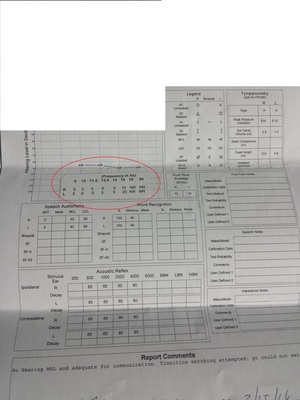Wow, didn't expect this:
I haven't read the full study yet, but if anyone's interested, it's available online.
Research Article said:The study included 33 subjects with noise-induced hearing loss diagnoses, of which 22 (66.7%) were men. Authors observed no statistical difference between gender and loudness/pitch tinnitus and loudness/pitch in subjects with bilateral tinnitus. Authors found an inverse relation between tinnitus loudness with intensity greater hearing threshold and the average of the thresholds and the grade of hearing loss. The tinnitus pitch showed no association with higher frequency of hearing threshold.
CONCLUSION:
Data analysis shows that, among the individuals evaluated, the greater the hearing loss, the lower the loudness of tinnitus. We did not observe an association between hearing loss and tinnitus pitch.
I haven't read the full study yet, but if anyone's interested, it's available online.

 Member
Member Tinnitus is a symptom of an underlying hearing abnormality.
Tinnitus is a symptom of an underlying hearing abnormality.
